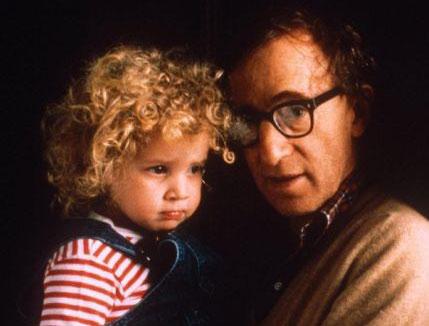Dylan Farrow and Woody Allen: There’s no justice in it, but if someone’s a big enough idol, we simply refuse to believe it when bad things are said
The fact that no dark cloud of concern or shame follows Allen is not down to his financial pull


Your support helps us to tell the story
From reproductive rights to climate change to Big Tech, The Independent is on the ground when the story is developing. Whether it's investigating the financials of Elon Musk's pro-Trump PAC or producing our latest documentary, 'The A Word', which shines a light on the American women fighting for reproductive rights, we know how important it is to parse out the facts from the messaging.
At such a critical moment in US history, we need reporters on the ground. Your donation allows us to keep sending journalists to speak to both sides of the story.
The Independent is trusted by Americans across the entire political spectrum. And unlike many other quality news outlets, we choose not to lock Americans out of our reporting and analysis with paywalls. We believe quality journalism should be available to everyone, paid for by those who can afford it.
Your support makes all the difference.“What’s your favourite Woody Allen movie?” begins Dylan Farrow’s open letter in The New York Times. Dylan is asking the world to pay attention to her recollection that, aged seven, she was sexually assaulted by her father. It’s an unusual set of circumstances among liberal thinkers and civilised sorts, where a woman would write such a raw, unsettling formative memory only to ignite a fierce debate about whether she’s lying and whether her mother is a manipulative bitch. But this is an unusual case because her father is Woody Allen.
Allen’s a godlike figure for quirky neurotics who love popcorn and poster sales. He is the patron saint of painful states. Allen has touched the hearts of millions of cinema lovers for more than 50 years. Thus, whatever else he’s touched or hasn’t touched has been politely ignored since Dylan’s allegation surfaced in 1992.
Back then Maureen Orth produced an epic-in-length Vanity Fair feature on the Dylan Farrow case. It is a bewilderingly dark story examining Woody Allen’s obsessive behaviour towards Dylan, of astounded babysitters, intimate suncream application sessions, and an incident in “an attic” – which is more accurately a space at the back of Mia Farrow’s bedroom closet that the children would crawl inside to hide – in which Dylan says that terrible things occurred.
Woody Allen denies this claim. At this year’s Golden Globes he was feted as a shining example of a human being. The fact that no dark cloud of concern or shame follows Woody Allen as he moves between budgeting meetings and casting sessions is not purely down to his financial pull. It is more complex than this.
There is a fascinating rule at play whereby tawdry allegations towards those who have created great art leads to many otherwise sensitive, morally stalwart types refusing to engage. Woody Allen movies – for so many worldwide – are their special thing. A thing of joy. A specialist subject. They will not give them up or have them tainted.
Judd Apatow or Keenen Ivory Wayans would not have this golden touch if a seven-year-old child swore with all their heart over a 22-year period that they’d been sexually assaulted. Woody Allen’s work has never really spoken to me – which isn’t a dig at his work – I simply do not possess that heartfelt desire that Manhattan Murder Mystery is so very amusing that I will not have it spoiled for me at any cost. Annie Hall and Vicky Cristina Barcelona leave me cold, so perhaps that is why I look at the case of an old man who began an inappropriate relationship with his adoptive teenager while his own daughter claimed abuse, and an entire family vehemently screaming for justice, and I deeply sympathise.
I watched a documentary about the Dad’s Army actor John Le Mesurier the other day and was taken aback at the part where when his wife ran off with Tony Hancock, only to subsequently return because “Tony was a drinker who knocked her about”. Hang on. Tony Hancock – heralded as a God of erudite and cerebral comedy for half a century – used to knock his wife out cold? Why have I not heard about this sooner? I would have heard about it if it was Bernard Manning.
Jim Davidson won Celebrity Big Brother last week and the reaction over social media appeared to be that this was a travesty. Davidson, it seemed, was not a nice person, and no happiness or goodwill could be seen to be delivered towards the fact he had been a nice enough bloke on a reality TV show with CCTV watching him 24 hours a day for an entire month.
But then Davidson is a Tory, the sort of man who flew to the Falklands to support “our boys” during the 1980s, loved Thatcher and has never, ever been cool. No one poses the question as to whether Jim Davidson’s ex-wife made up that he was an alcoholic wife beater.
Essentially, our reaction to celebrities’ taboo behaviour seems to depend on the worthiness of their output. The pop star R Kelly has been accused of some terrible crimes against underaged women, but Lord how I love his music, so I tend to look the other way. Culturally, the way the land lies in the thinking world right now, Chris Morris, The Coen Brothers or Nile Rogers could literally get away with murder. That, kids, is showbiz.
Join our commenting forum
Join thought-provoking conversations, follow other Independent readers and see their replies
Comments